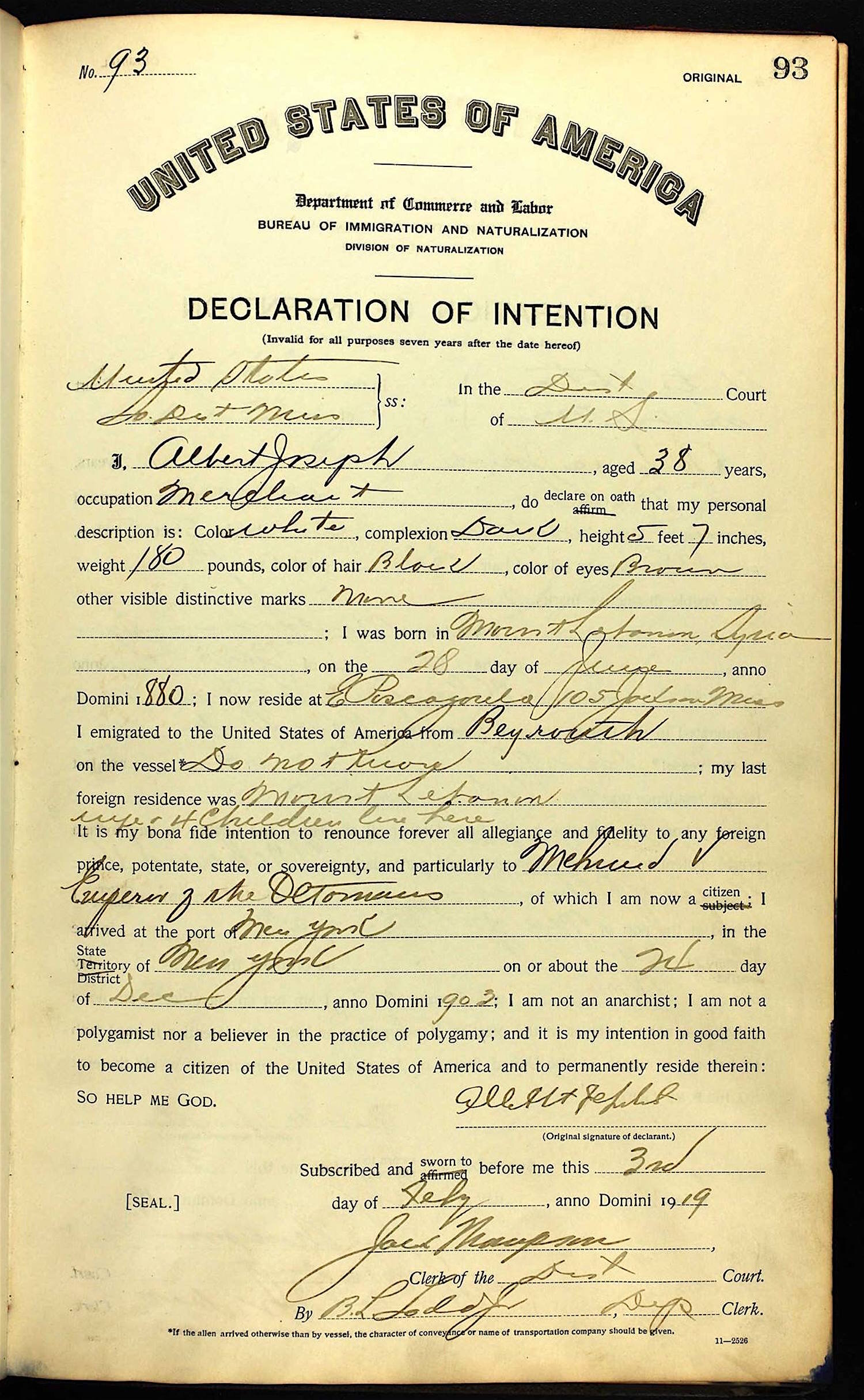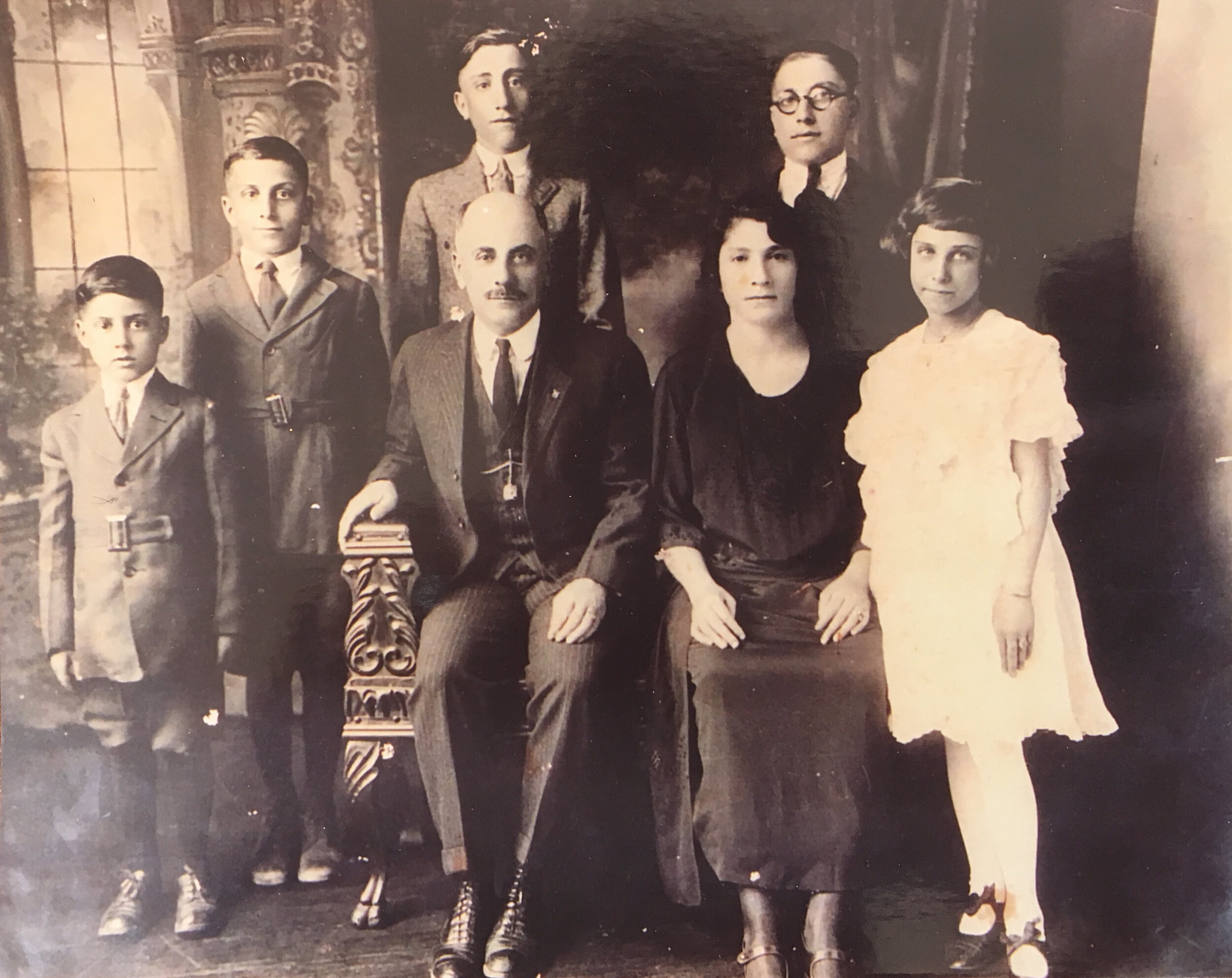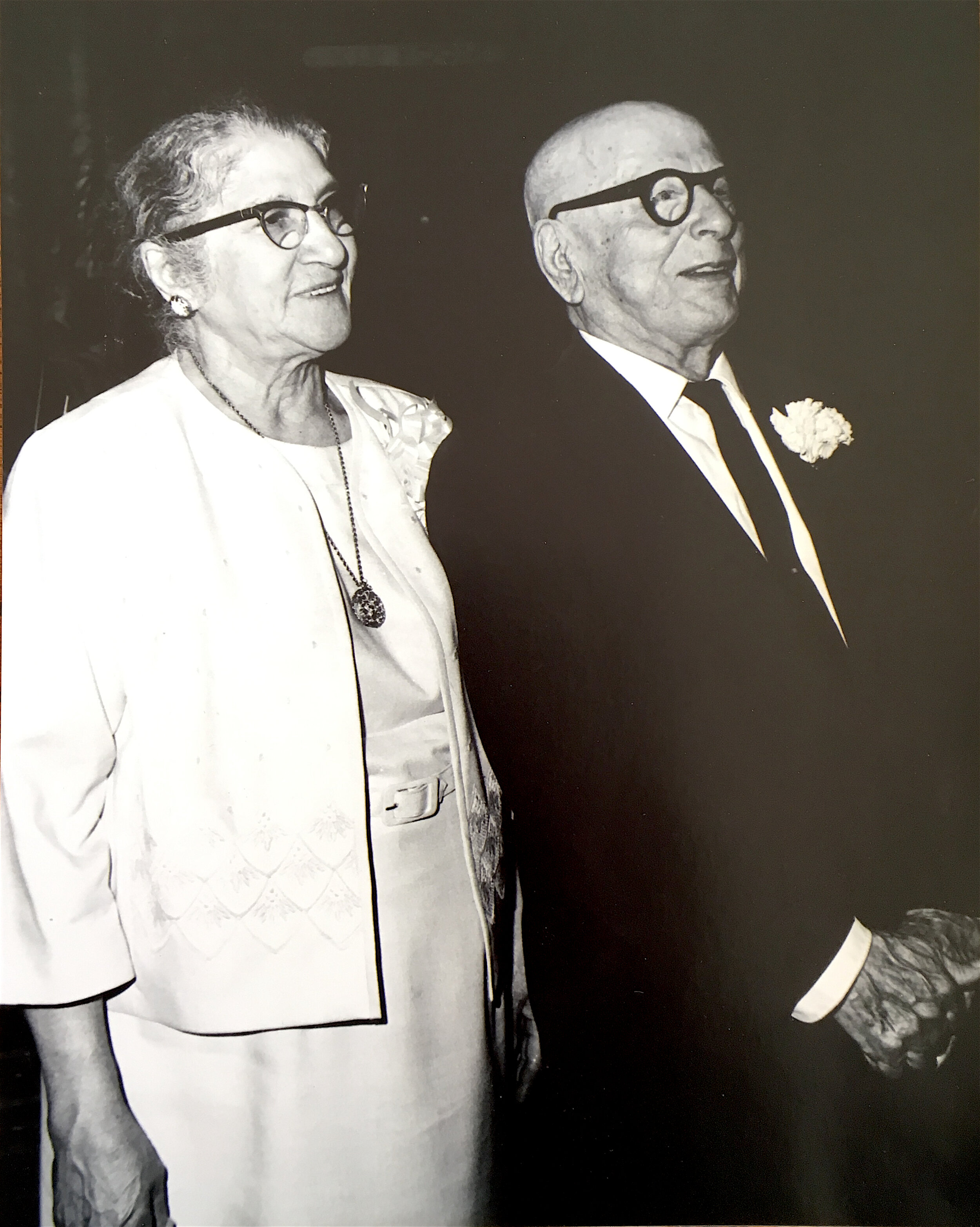Dolores Thomas Ulmer
Jackson
Dolores Thomas Ulmer was born in 1947 in Jackson, Mississippi, to Edward and Victoria Thomas, née Joseph. Edward’s father, Sawaya Norman (S.N.) Thomas, was born in 1880 and came to America with his mother from Shweir, Syria, in 1894. S.N. first peddled wares around New York state but, as Dolores recounts in her interview, after the accidental death of his mother in 1896, S.N. relocated to Jackson, Mississippi, to work with a cousin selling dry goods. S.N. became a shrewd businessman, opening a series of retail and wholesale businesses that eventually grew into S.N. Thomas’ Sons Wholesale, a prosperous family-owned wholesale distribution business.
Dolores grew up in Jackson, attending St. Mary Catholic School, St. Richard Catholic School, St. Joseph High School, and graduating from Murrah High School. She taught second grade at St. Richard after graduating with a degree in education from the University of Mississippi in 1968. While at the university, Dolores sang in the choir with the University Singers. Her experience with music during her college years was not limited to the Ole Miss campus, though. “While I was there I saw an announcement on the bulletin board,” she recalled. “They were hunting for a girl singer in a rock ’n’ roll band. I called the number and tried out, and so I went on the road with the rock ’n’ roll band, just on the weekends, and we traveled the Southeast.” The band was the Royal American Showmen, and Dolores was the lead singer.
Her mother’s family, the Josephs, belonged to the Cedars of Lebanon Club in Jackson and attended Lebanese conventions, organized by the Southern Federation of Syrian Lebanese American Clubs, across the Southeast, and many of the Josephs remain active in those organizations. Dolores and her daughter Mary Miller have attended Lebanese conventions together in both Jackson and Memphis.
Dolores lives in Jackson with her husband, Curt Ulmer. Mary is a writer and lives in Oxford. Her latest book is Biloxi: A Novel.
This interview took place at Ulmer’s home in Jackson on January 5, 2018. Mary Miller was present and participated in the interview.
AUDIO (Click to listen):
Dolores Ulmer’s grandfather’s story of coming to America and peddling around New York City is not an unfamiliar one for Lebanese Mississippians. Many newcomers to the country began their lives in America elsewhere before making Mississippi their home.
The first generation of Lebanese in America seldom had fond memories of their lives on the Mountain, and many, like S.N. Thomas, chose to embrace their American nationality rather than celebrate their Syrian homeland, while still maintaining their cultural roots.
Even by the mid- to late 1960s, the Lebanese on college campuses in Mississippi faced various forms of exclusion, including being denied membership to certain sororities and fraternities. Sororities on the University of Mississippi campus were no exception.
Like other southern families, the Lebanese in Mississippi cherish their foodways and family traditions surrounding them. Sunday meals were one such tradition that the Thomas family was faithful in preserving.
“He wanted to do the dry goods, what he had learned in New York. He backpacked and went from door to door. As the story goes, he would travel to all of these little dry goods places with horse and buggy. One dry good place was in Donaldsonville, Louisiana, and it was a Lebanese family, and he would call on this family and try to sell them his little goods and stuff. Well, there was a young girl in the home. Her name was Saleemie Ellis. And S.N., or as we would finally call him, Jitti, had an eye for her, and so he stated his intentions to her father, but every time Saleemie would see him, she would run out of the room. So he finally broke down and told her father, “I would like to marry your daughter. If you are interested, I live in Jackson, Mississippi, and you can bring her up there.” Mr. Ellis moved his whole family to Jackson, Mississippi. He wanted that marriage to happen.”
“My grandfather, S.N. Thomas, had started a retail wholesale store at the corner of Pearl and President. The four boys that were in the business, each had a role to play. Ernest, the oldest, was the buyer, and my father was a salesman, so he was on the road traveling for S.N. Thomas, the wholesale side. When the men came home from the war they changed it to wholesale. Strictly. And then Bill, or William, ran the shipping area, and Leon was head of the business. So the four boys were divided into each area they would do. My dad traveled all over the Southeast, and I used to meet people all the time, and they’d say, ‘Was your father Edward Thomas?’ because he would go into the little local stores. They’d say, ‘Oh, your daddy use to call on my parents.’ So if you had a retail store anywhere in the Southeast, they would know Edward Thomas because he would be the one calling on them.”
“I have a picture of [my Thomas grandparents] when they celebrated their fiftieth wedding anniversary. It was a huge party at their home on Capitol Street. And Jitti and Grandma, knowing all the people that they did, [. . .] there was the head Jewish church leader, there was the bishop of the Episcopal Church, and there was the bishop of the Catholic Church there at the same time. And all the politicians. It was interesting that everybody had a love for this family and this man, S.N. and his wife, and that they would all show up at the same time. I love that. And we were all dressed up, being host and hostesses to the city.”
—Dolores Thomas Ulmer
PHOTOS (Click to enlarge):
Photos in this collection include [top, left to right]: wedding portrait of Victoria and Albert Joseph; the U.S. Declaration of Intent to Naturalize for Ulmer’s maternal grandfather Albert Joseph; portrait of Ulmer’s father and uncles (left to right): Edward [father], William, and Ernest; Thomas family portrait (left to right): Leon, William, Ernest, S.N. (seated), Saleemi, Edward, and Victoria; Dolores’s father’s second-grade class portrait, Poindexter School in Jackson [Edward, second row, far right, standing]; Dolores Ulmer’s family portrait [Dolores, bottom right]; S.N. Thomas at his desk at S.N. Thomas’ Sons; and Saleemi and S.N. Thomas.








